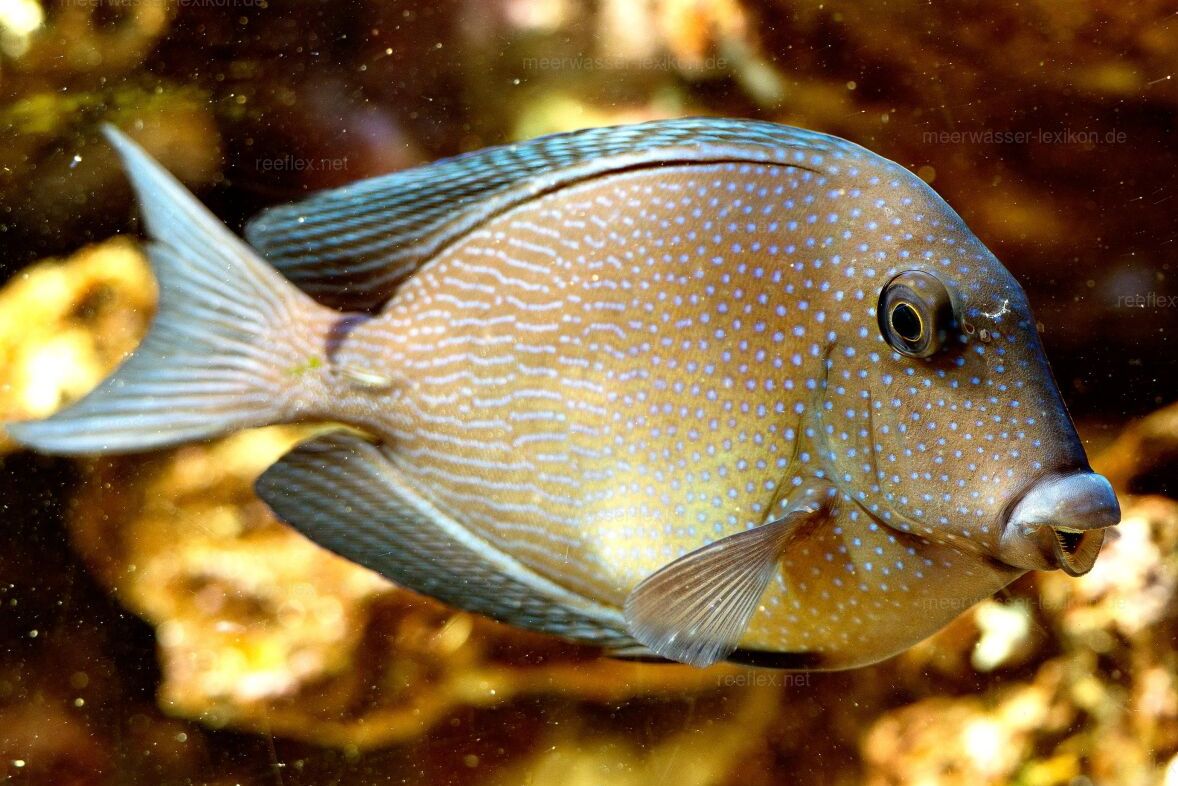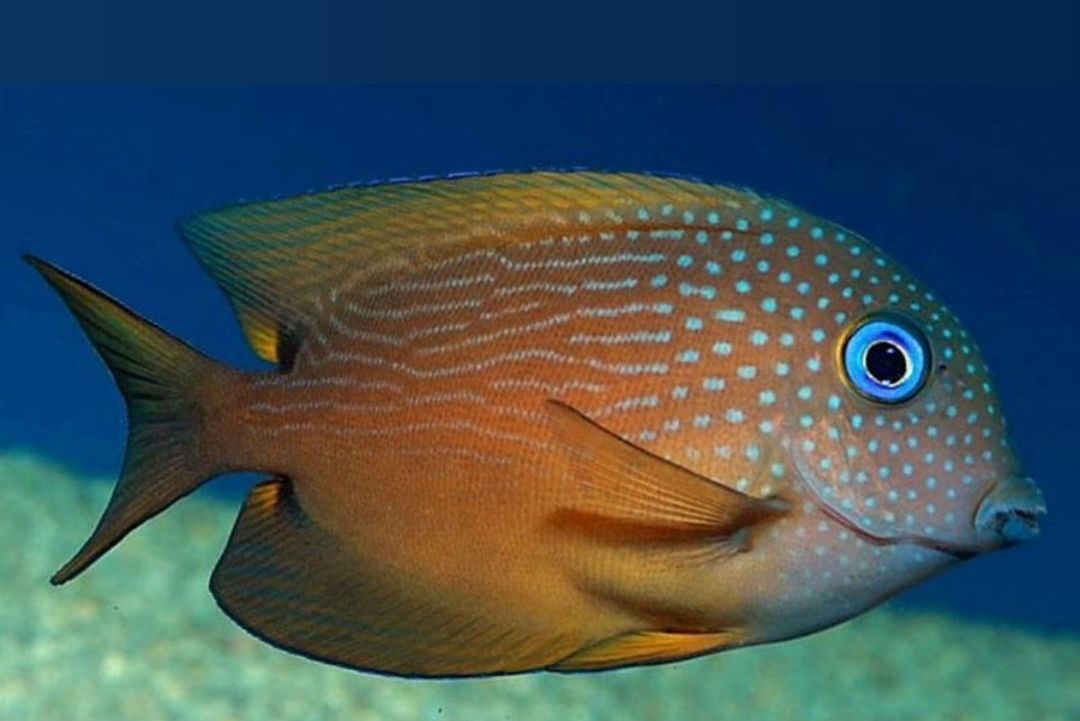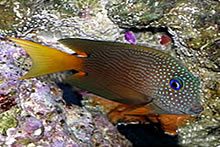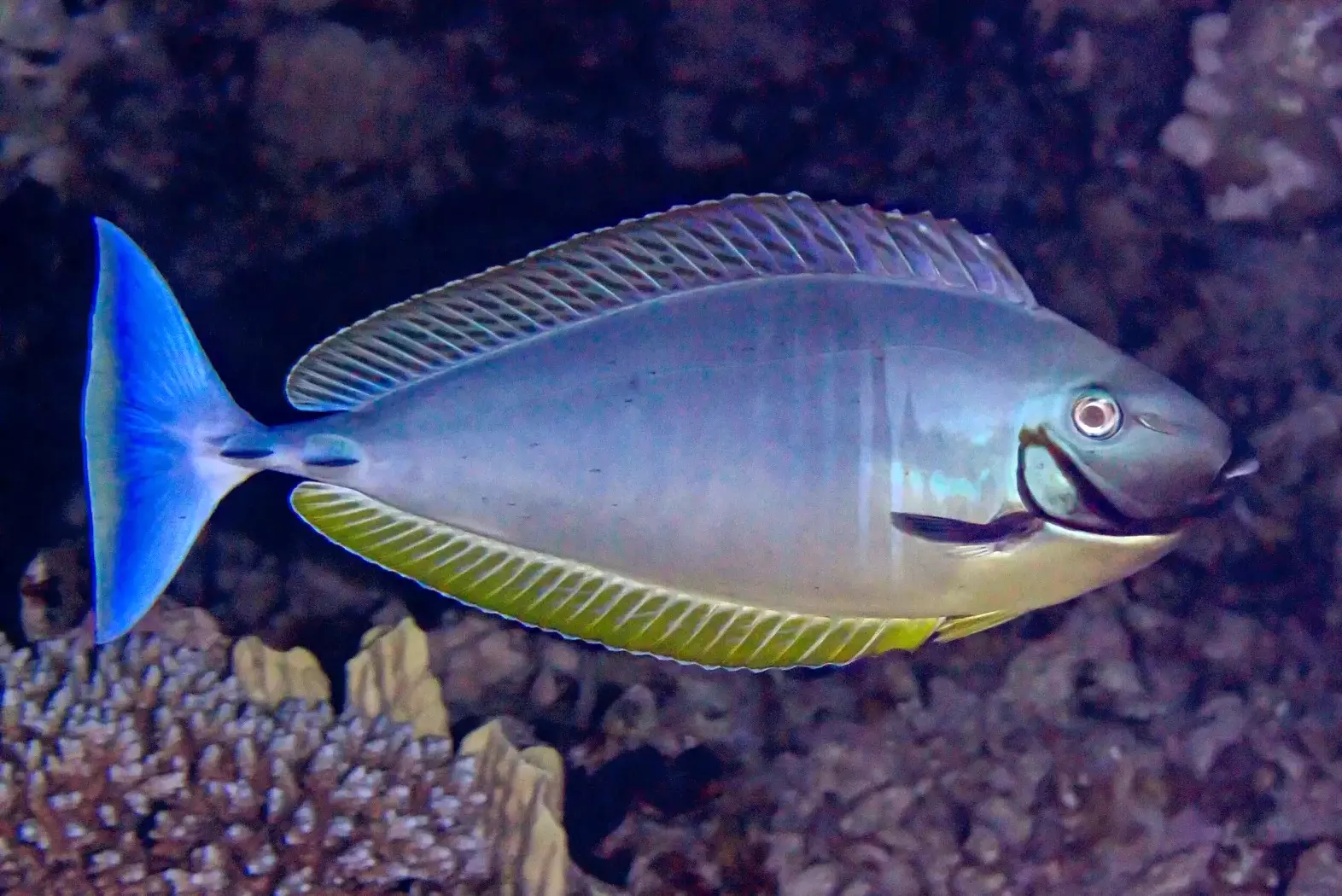Description
Aquarium Requirements:
- Tank Size: 100 gallons (380 L) minimum for juveniles; 180+ gallons (680+ L) for adults
- Water Parameters:
- Temperature: 75–82°F (24–28°C)
- pH: 8.1–8.4
- Salinity: 1.020–1.025 SG
- Ammonia/Nitrite: 0 ppm
- Nitrate: <20 ppm
- Water Flow: Moderate to strong, turbulent (10–15× tank volume per hour)
- Lighting: Moderate to high (PAR 150–250) to support algae growth on live rock
Size & Lifespan:
- Adult Size: 10–11 inches (25–27 cm)
- Lifespan: 8–15 years with proper care and diet
Behavior & Tank Mates:
- Diurnal, peaceful grazer that forages constantly on algae films; prefers groups in the wild but best kept singly or in pairs/groups in 200+ gallons
- Low aggression overall; may nip at other bristletooths or similar surgeonfish if territory is limited
- Compatible with:
- Peaceful community fish like clownfish, chromis, gobies, blennies, and cardinalfish
- Other herbivores (e.g., Kole Tangs if introduced together)
- Avoid: Aggressive species, small nano fish, or overcrowded tanks with multiple tangs
- Fully reef-safe – excellent for algae control without harming corals or inverts
- Features a sharp caudal spine for defense – handle with care to avoid injury
Diet & Feeding:
- Strict herbivore with specialized “bristle” teeth for scraping fine algae; sensitive mouth requires soft, filamentous foods
- Feed 3–5 times daily in small portions:
- Nori/seaweed or spirulina sheets on a veggie clip (primary diet)
- Algae-based flakes and pellets (e.g., Ocean Nutrition Seaweed Deluxe, New Life Spectrum AlgaeMAX)
- Blanched veggies like lettuce, spinach, or zucchini; macroalgae scraps
- Occasional mysid or brine shrimp for variety, but prioritize veggies
- Essential: Mature tank with live rock for natural grazing; supplement with algae reactor if needed
Additional Care Notes:
- Prone to ich, velvet, and head/lateral line erosion (HLLE) from poor diet/water quality – quarantine 4–6 weeks mandatory
- Drip acclimate slowly (2–3 hours); protect sensitive mouth during handling/transport to prevent damage
- Thrives in slightly “dirty” systems with detritus for feeding; avoid over-cleaning rocks
- Spots may fade if stressed or underfed – maintain algae access for vibrant color and health
- Provide rockwork with crevices for hiding and grazing surfaces
- UV sterilizer, protein skimmer, and refugium recommended for disease prevention
- Wild-caught only – not captive-bred
- Valuable for natural algae management in reef setups






